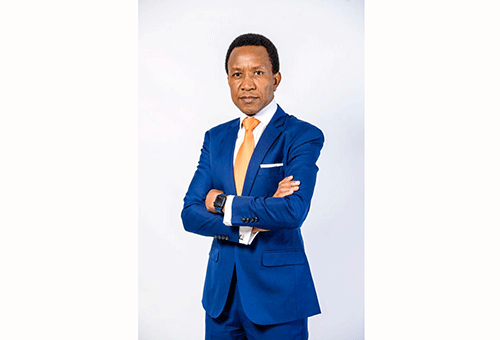The Namibia Revenue Agency (NamRA) surpassed its revenue-collection target for the 2022/23 financial year by N$4 billion. Last year, the State revenue collector was required to bring in N$53 billion in what was seen as an ambitious target then, but exceeded this and collected a total of N$57 billion.
This impressive figure was confirmed by NamRA’s head of domestic taxes, Idi Itope, yesterday at the second edition of the taxpayer/trader appreciation day held under the theme ‘Taxes and Duties build Namibia’. The day is intended to promote voluntary compliance and enhance tax morale by recognising and appreciating compliant taxpayers and traders who continue to conform to the relevant laws administered by NamRA.
“We have an obligation also to pay out refunds to legitimate taxpayers. On average, we pay N$2.2 billion per quarter as refunds. As we move forward, estimates rise, and we are required to collect more tax revenue,” he stated.
The agency now has a tax revenue target of N$68 billion for FY2023/24. Itope noted that the domestic economy is expected to grow, with the gross domestic product (GDP) expected to reach N$215.2 billion for FY2023/24.
At the same event, the finance ministry’s deputy executive director Oscar Capelao said until someone comes up with a better idea, taxation remains the only practical means of raising revenue to finance government spending on goods and services most people demand from government.
“Setting up an efficient and fair tax system is, however, far from simple. But it starts with an equitable policy framework. While recognising that a nation represents an aggregation of individual preferences, we deploy our tax policy by ensuring that we support a vibrant economy that’s creating jobs and remains competitive in the global community and regionally,” he added.
The deputy executive director said fringe benefits need to be reviewed to ensure all salaried earners pay their fair share of the employment benefits they enjoy. Namibia thus needs fairness and administrative efficiency for all taxpayers.
“Corporates cannot speak of good governance and be aggressive tax planners. We cannot achieve the UN sustainable development goals (SDGs) while corporates are moving around profits to lower tax regimes, away from developing countries like ours. Corporates should bear their fair share of tax burdens in countries they operate in,” Capelao stressed.
Additionally, there is material tax revenue to be generated in oil and gas once operational investment and production have commenced. On green hydrogen, he said there is current work being done on a proposed legal framework.
“We remain committed to broadening the tax base, which should lead to a lower tax burden per person. Our policy remains underpinned by competitiveness and economic growth,” Capelao observed.
At the same occasion, NamRA commissioner Sam Shivute said Namibia can only be economically independent through domestic resources mobilisation. He thus urged Namibians to continue with voluntary tax compliance to enable the country to efficiently perform its duties.



